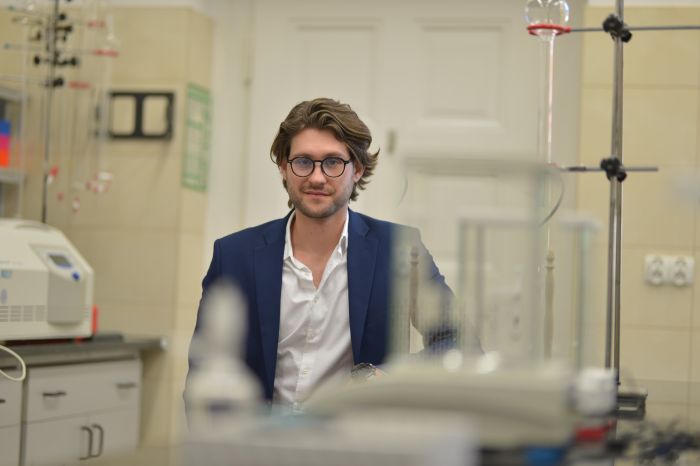A PhD student at Wrocław University of Environmental and Life Sciences is studying methods to imitate honey and developing a method to verify its composition. Throughout the production process, Jordan Sycz will test the honey.
According to the University’s press release:
“The most popular practices of honey adulteration include, for example, the addition of various types of substances that enrich the taste and smell, as well as reducing production costs and replacing the raw materials with other equivalents, often of lower quality.”

Jordan Sycz, a PhD student at Wrocław University of Environmental and Life Sciences, wants to take a closer look at the ways of adulterating natural honeys in order to develop simple methods to verify their chemical composition and geographical origin. For the project “Analysis of adulterations in the chemical composition and geographical origin of natural honeys from Poland and Europe in relation to enriched honeys and herbal honeys using chromatographic techniques coupled with mass detection” he received a grant from the National Science Center worth nearly PLN 210,000.
“The chemical composition of natural honey may vary depending on the climate and environmental conditions, the method of production or the type of raw material from which it was made. Unfortunately, we often need to deal with popular unfair market practices of enriched natural honeys, often of synthetic origin, or the intentionally hidden botanical origin. Everything to increase the price of the finished product.”,
said Jordan Sycz.
In his opinion, the methods of enriching food are becoming more complex and sophisticated, and the chemical complexity of honey matrices makes it difficult to detect subtle changes in its composition.
The scientist will exame changes in the chemical composition of honey at each of the individual stages of its production, including processing by bees. He will check the differences in the volatile profiles of honeys and detect adulterations in complex matrices of enriched and herbal honeys.
The project is also intended to provide comprehensive knowledge about the so-called marker compounds and specific chemical profiles, allowing for a thorough analysis of adulterations not only in the final product, but also at the production stage, i.e. bee honey (pollen, nectar and honeydew). The following will be analysed: honeys most often affected by fraudulent counterfeiting practices, such as rapeseed, heather, buckwheat, honeydew, acacia, goldenrod, phacelia and linden honey.
“The culmination of the research will be the preparation of a sensory panel in which the correlation of the impact of selected volatile marker compounds on the taste and smell of authentic natura, enriched, and herbal honeys will be examined.”,
said the researcher.
